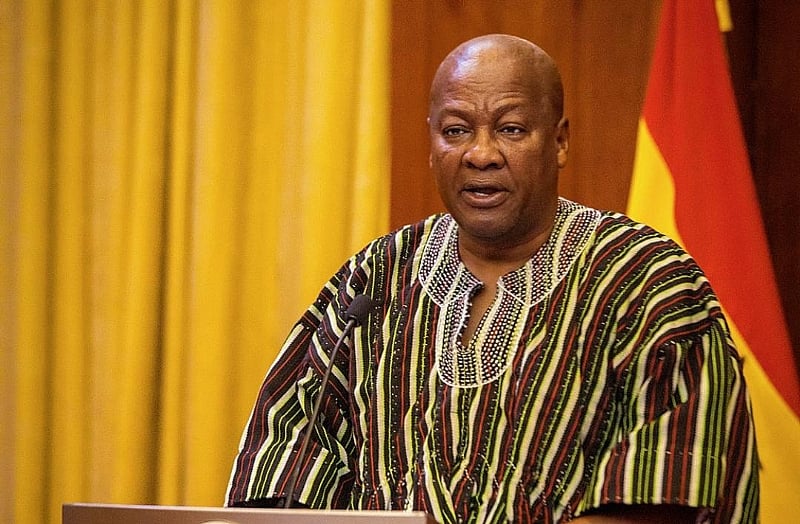Dr. Steve Manteaw, a prominent figure in Ghana’s extractive industry transparency movement, has expressed deep concern over the government’s approach to combating illegal mining, commonly known as galamsey. He argues that the current administration, led by President John Dramani Mahama of the National Democratic Congress (NDC), is squandering public trust by failing to effectively address this critical issue. Dr. Manteaw points to a stark contrast between the government’s promises while in opposition and its current actions, particularly its decision to deport foreign nationals engaged in galamsey rather than prosecuting them under Ghanaian law. This policy, he contends, not only undermines the rule of law but also creates a perception of double standards, where foreign offenders are treated more leniently than their Ghanaian counterparts. He emphasizes that such a policy sends a dangerous message and risks eroding public confidence in the government’s commitment to tackling this destructive practice.
The core of Dr. Manteaw’s critique lies in the perceived leniency shown towards foreign galamsey operators. He questions the rationale behind prioritizing deportation over prosecution, suggesting that it creates an environment of impunity. By choosing to deport rather than prosecute, the government, in Dr. Manteaw’s view, avoids the complexities and potential delays of legal proceedings, opting for a seemingly quicker solution that ultimately fails to address the root of the problem. Furthermore, he argues that this approach undermines the deterrent effect of the law, potentially encouraging further illegal activity by signaling that foreign perpetrators can escape the full force of Ghanaian justice. The question he poses – “Are Ghanaian offenders less human than those foreigners who offend our laws with impunity?” – highlights the perceived inequity in the application of the law and raises concerns about potential discrimination.
The policy in question, introduced by Interior Minister Muntaka Mubarak, mandates the deportation of foreign nationals involved in criminal activities, including illegal mining, as a primary response. The Minister justifies this approach by emphasizing the government’s focus on swiftly removing individuals contributing to environmental degradation and other crimes. He argues that deportation offers a more expedited solution compared to the lengthy process of prosecution. Furthermore, the policy includes placing deported individuals on a stop list, preventing their re-entry into Ghana. While the government portrays this as a decisive measure to protect national interests, critics like Dr. Manteaw argue that it circumvents due process and fails to hold perpetrators accountable under the law.
Dr. Manteaw’s concerns resonate within the broader context of Ghana’s struggle against galamsey. Illegal mining has caused widespread environmental devastation, including deforestation, water pollution, and land degradation. It also poses significant social and economic challenges, impacting local communities and undermining the sustainable development of the mining sector. The government’s efforts to combat this menace have been met with varying degrees of success, and the current deportation policy has sparked a debate about the most effective approach. Dr. Manteaw’s critique adds another layer to this complex issue, highlighting the importance of transparency, accountability, and equitable application of the law in addressing the galamsey crisis.
The government’s rationale for prioritizing deportation centers on efficiency and expediency. The Minister of Interior argues that it allows for the swift removal of foreign offenders, minimizing the burden on the legal system and enabling a quicker response to environmental damage and other related crimes. By placing deported individuals on a stop list, the government aims to prevent their return and further involvement in illegal activities. This approach, according to the government, represents a proactive strategy to protect national interests and address the immediate threat posed by foreign involvement in galamsey. However, critics like Dr. Manteaw argue that this approach overlooks the long-term implications of circumventing legal processes and potentially fostering a culture of impunity.
The debate surrounding the deportation policy underscores the challenges inherent in tackling complex issues like illegal mining. While the government emphasizes the need for swift action and border security, civil society advocates like Dr. Manteaw prioritize the principles of justice, accountability, and equal treatment under the law. The ongoing discussion highlights the tension between these competing priorities and the importance of finding a balanced approach that effectively addresses the galamsey menace while upholding fundamental legal principles. The central question remains: does the perceived efficiency of deportation outweigh the potential risks of undermining the rule of law and creating a two-tiered system of justice? This is the challenge that the government must address to regain the public trust that Dr. Manteaw argues is rapidly eroding.


